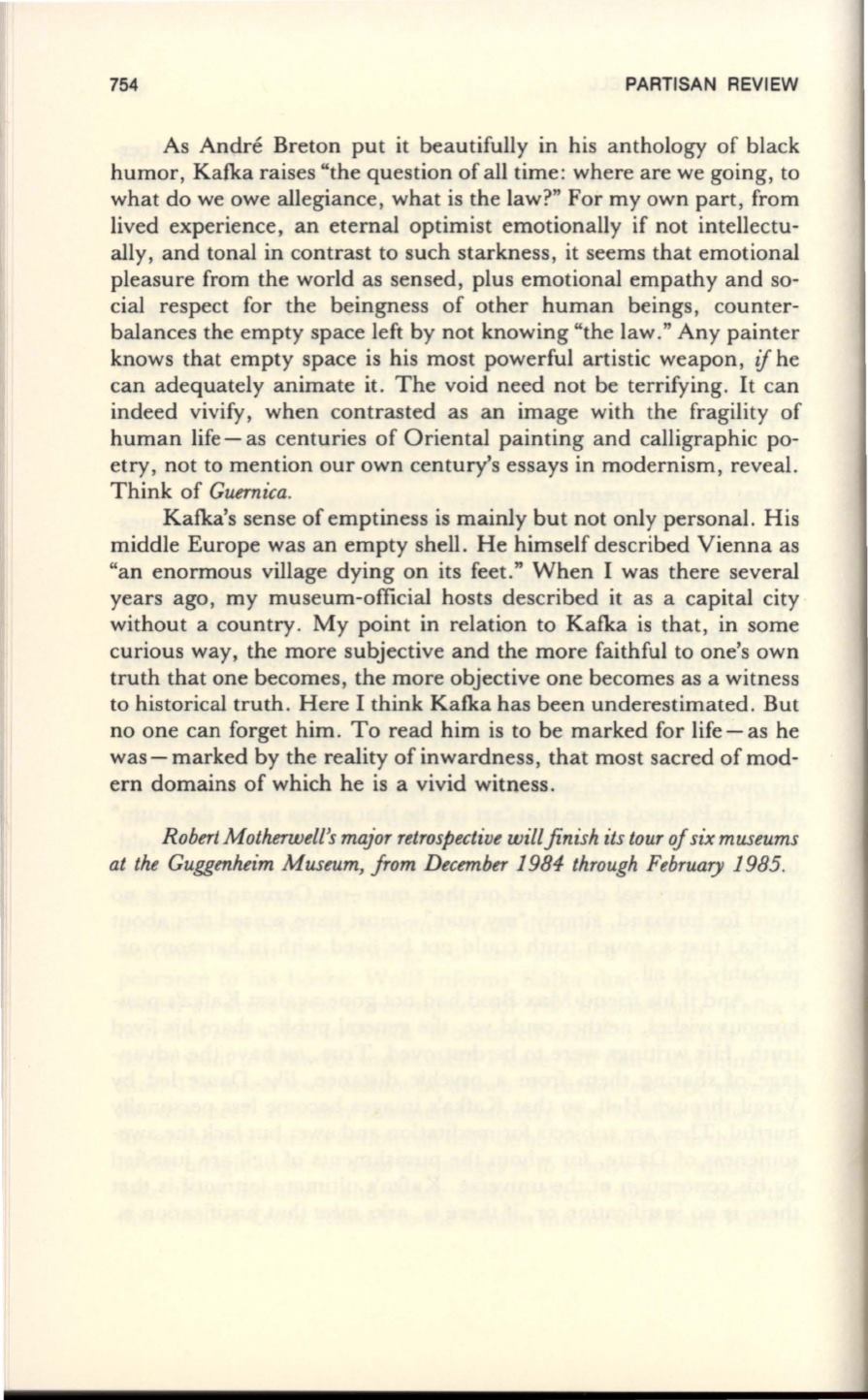
754
PARTISAN REVIEW
As Andre Breton put it beautifully in his anthology of black
humor, Kafka raises "the question of all time: where are we going, to
what do we owe allegiance, what is the law?" For my own part, from
lived experience, an eternal optimist emotionally if not intellectu–
ally, and tonal in contrast to such starkness, it seems that emotional
pleasure from the world as sensed, plus emotional empathy and so–
cial respect for the beingness of other human beings, counter–
balances the empty space left by not knowing "the law." Any painter
knows that empty space is his most powerful artistic weapon,
if
he
can adequately animate it. The void need not be terrifying.
It
can
indeed vivify, when contrasted as an image with the fragility of
human life- as centuries of Oriental painting and calligraphic po–
etry, not to mention our own century's essays in modernism, reveal.
Think of
Guernica.
Kafka's sense of emptiness is mainly but not only personal. His
middle Europe was an empty shell. He himself described Vienna as
"an enormous village dying on its feet." When I was there several
years ago, my museum-official hosts described it as a capital city
without a country. My point in relation to Kafka is that, in some
curious way, the more subjective and the more faithful to one's own
truth that one becomes, the more objective one becomes as a witness
to historical truth. Here I think Kafka has been underestimated. But
no one can forget him. To read him is to be marked for life- as he
was- marked by the reality of inwardness, that most sacred of mod–
ern domains of which he is a vivid witness.
Robert Motherwell's major retrospective willfinish its tour ofsix museums
at the Guggenheim Museum, from December 1984 through February 1985.


